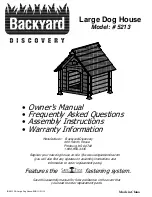
5
1.4 Contraindications
The OmniLab Ad is not a life support device.
The device system should not be used on patients with the following conditions:
• Patients without a spontaneous respiratory drive
• Existing respiratory failure (failure to treat; risk of increased work of breathing due either to incomplete reversal
of upper airway obstruction or to breathing at high lung volume, leading to worsening respiratory failure)
• Pneumothorax or pneumomediastinum
• Emphysematous bullae or a past history of pneumothorax (risk of pneumothorax)
• Acute decompensated cardiac failure or hypotension, particularly if associated with intravascular volume
depletion (risk of further hypotension or reduction in cardiac output)
• Massive epistaxis or previous history of massive epistaxis (risk of recurrence)
• Pneumoencephalus, recent trauma or surgery (ex. pituitary or nasal) that may have produced cranio-
nasopharyngeal fistula (risk of entry of air or other material into the cranial cavity)
• Acute sinusitis, otitis media, or perforated ear drum
• Acute or unstable cardiac failure
• Nocturnal or resting angina (risk of infarction or arrhythmias)
• Unstable arrhythmias
• Severely obtunded or heavily sedated patients
• At risk for aspiration of gastric contents
• Impaired ability to clear secretions
If patients are dehydrated or volume depleted, or have persistent atrial fibrillation, their cardiac filling pressures may
be low. In these cases, as with any CPAP or ventilatory support, use of the device may lead to a dangerous reduction
in cardiac output. The device should not be used in patients who are dehydrated or volume depleted, and should be
used with extreme care in patients with atrial fibrillation.
1.5 Patient Precautions
Immediately report any unusual chest discomfort, shortness of breath, or severe headache.
If skin irritation or breakdown develops from the use of the mask, refer to the mask instructions for appropriate
action.
The following are potential side effects of non-invasive positive pressure therapy:
• Ear or sinus discomfort
• Conjunctivitis
• Skin abrasions due to noninvasive interfaces
• Gastric distention (aerophagia)
• Drying of nose, mouth or throat
• Eye irritation
• Skin rashes
• Chest discomfort










































